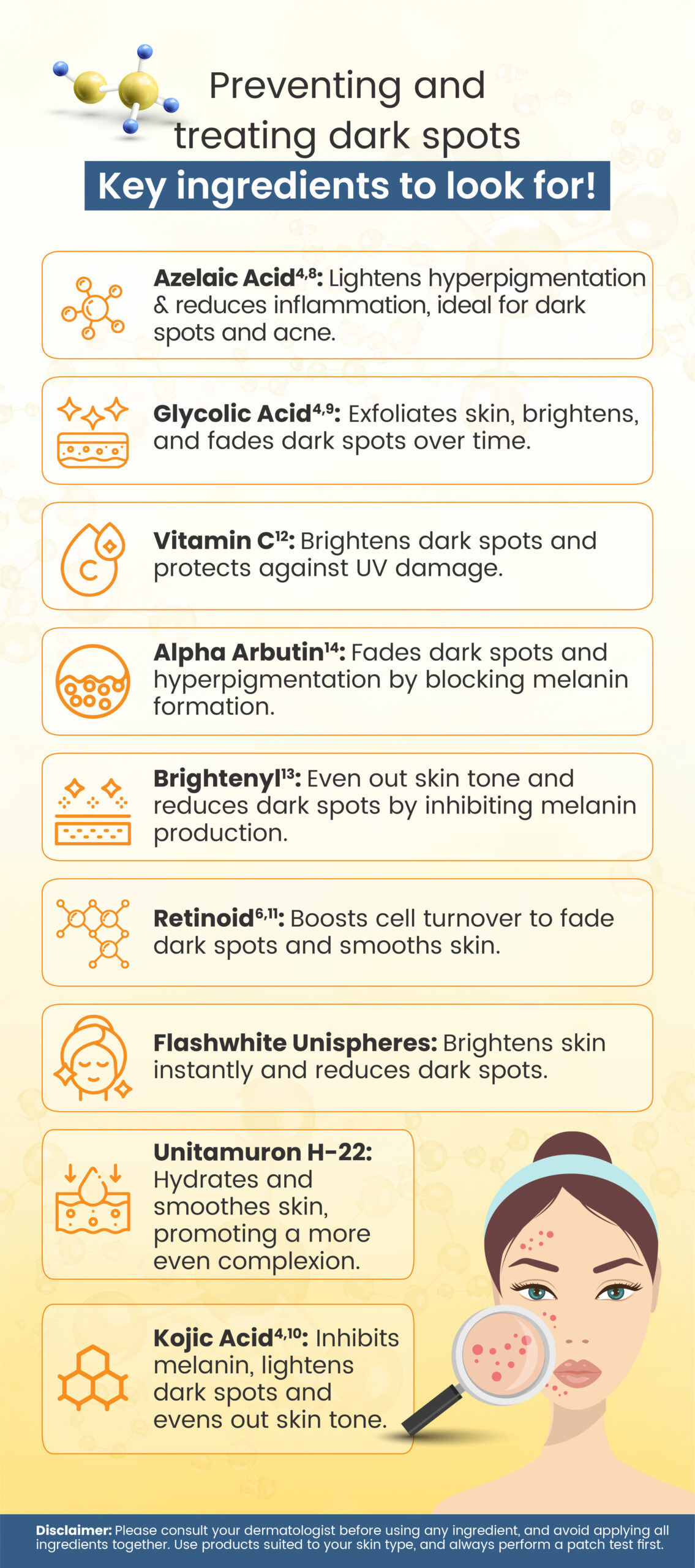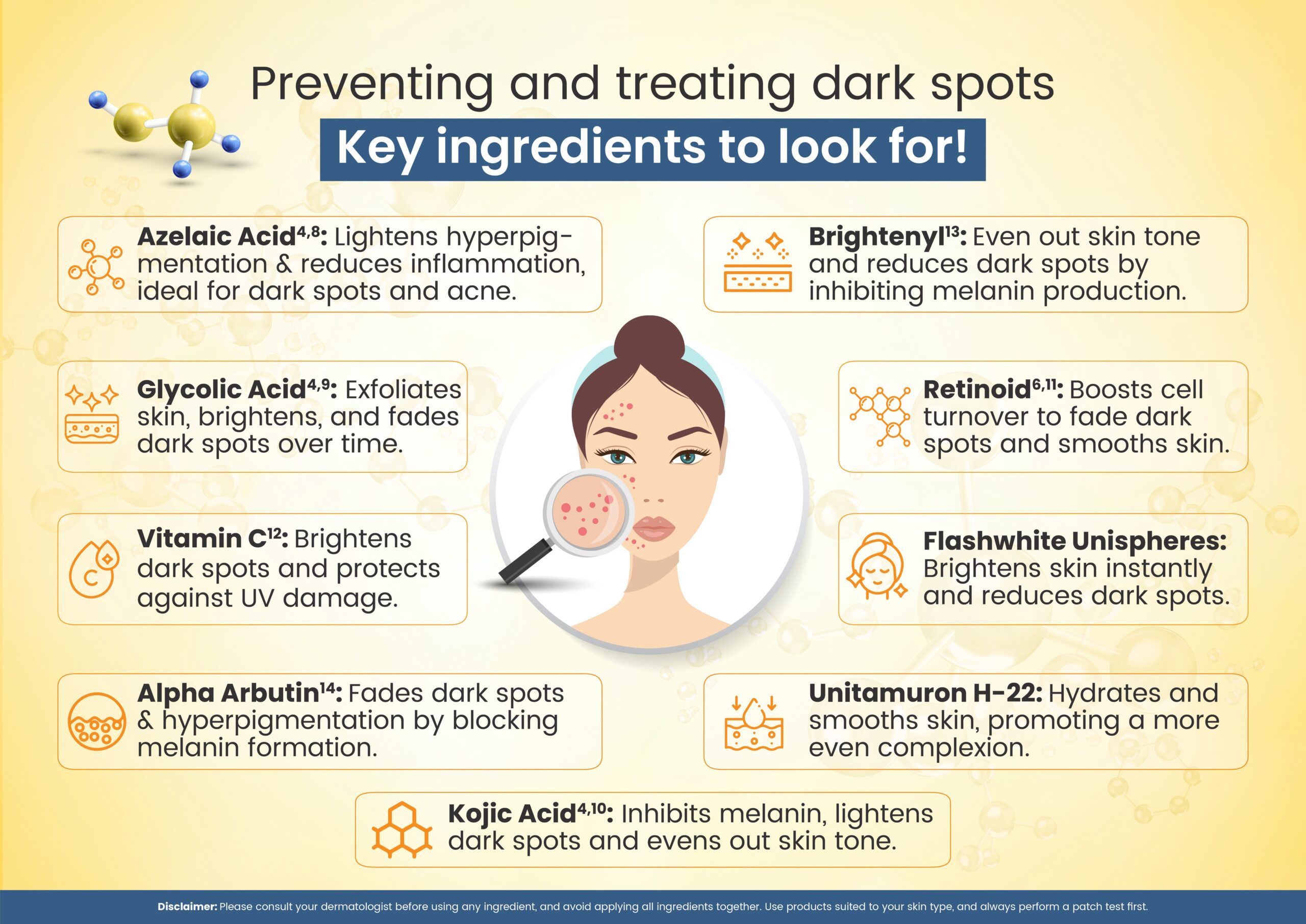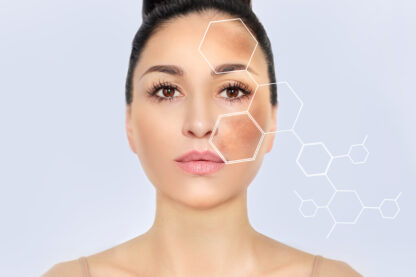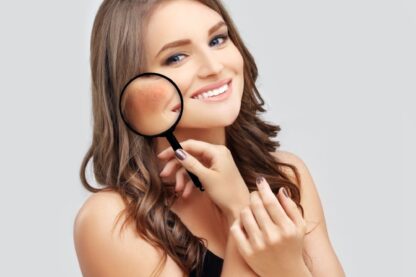Say Goodbye to Dark Spots: Top Treatments and Tips
4 mins read
What Are Dark Spots and How Can You Treat Them?
Ever wondered why some patches on your skin seem to cling on despite all your efforts to keep an even, glowing complexion? Dark spots are often the uninvited guests on our skin journey—appearing mysteriously and refusing to fade. Whether it’s sun exposure, hormonal changes, or just time, understanding dark spots can be the first step toward treating and preventing them. Let’s find out what causes these patches and explore effective treatments for clearer, brighter skin.
What are dark spots?
Dark spots, also known as hyperpigmentation are areas where excess melanin—the pigment responsible for your skin color—causes parts of the skin to appear darker than the surrounding area. These spots can range in size and are usually seen on areas exposed to the sun, such as the face, shoulders and hands.1
What causes dark spots?1,2,3,4
Dark spots can develop for several reasons:
- Sun exposure - UV rays stimulate melanin production which can lead to sun spots or age spots.
- Genetics - It plays a big role in skin tone with up to 125 genes influencing how much melanin our skin produces. Melanin, the pigment responsible for skin colour is created by skin cells called melanocytes which are partly determined by our genes. People with darker skin usually have higher melanin levels than those with lighter skin tones.
- Skin inflammation - Conditions like acne, eczema, or psoriasis may cause post-inflammatory hyperpigmentation.
- Hormonal changes - Pregnancy or birth control use can lead to melasma, a common type of dark spot.
- Medication side effects - Some medications increase the skin’s sensitivity to sunlight making it more prone to dark spots.
Are dark spots the same as hyperpigmentation?
Dark spots are a form of hyperpigmentation which describes any area of the skin that appears darker than the surrounding skin. Dark spots typically refer to small, isolated patches, while hyperpigmentation may include larger, widespread areas of discoloration.4
How to prevent dark spots?
Prevention is key to keeping dark spots at bay! Here are a few daily habits to protect your skin:1,3
Use sunscreen
Choose an SPF 30 or higher with broad-spectrum protection as it guards against both UVA and UVB rays.
Avoid peak sun hours
The sun’s rays are strongest from 10 a.m. to 4 p.m., so try wearing hats or staying in shaded areas during this time.
Handle skin gently
Avoid picking or squeezing blemishes as this may lead to scarring and dark spots.
Incorporate antioxidants
Ingredients like Vitamin C or alpha arbutin to neutralize free radicals helping to prevent new dark spots.
How long does it take for dark spots to fade?
How long dark spots take to fade depends on their cause and how deep they are in the skin. Some spots may lighten within a few months while a spot that is slightly darker than your natural skin tone will typically fade within 6 to 12 months.4
Why is sunscreen essential for dark spot prevention?
Daily sunscreen is crucial because it protects against UV rays, a major trigger for dark spots. Consistent sunscreen use can prevent existing spots from worsening and reduce the risk of new ones forming.4
Recommended treatments for stubborn dark spots
If you have persistent dark spots, targeted treatments may help such as:3,4
Topical treatments
Look for active ingredients like retinoids, hydroquinone, niacinamide and alpha arbutin.
Chemical peels
These help remove the uppermost layer of skin making dark spots less noticeable.
Laser therapy
Targeted light therapy can break up areas of extra melanin, helping dark spots fade.
Dark spots may be stubborn but with consistent care, preventive measures and the right treatments, achieving a clearer, more even complexion is within reach. Remember, patience is key—many treatments take time to show results and daily habits like sunscreen use can go a long way in preventing new spots from forming. Embrace a skincare routine that works for you and consult a dermatologist for personalized advice. With the right steps, you’ll be well on your way to brighter, spot-free skin.
Everyday Habits that Can Help Prevent Dark Spots

Wear a broad-brimmed hat when outdoors5
1
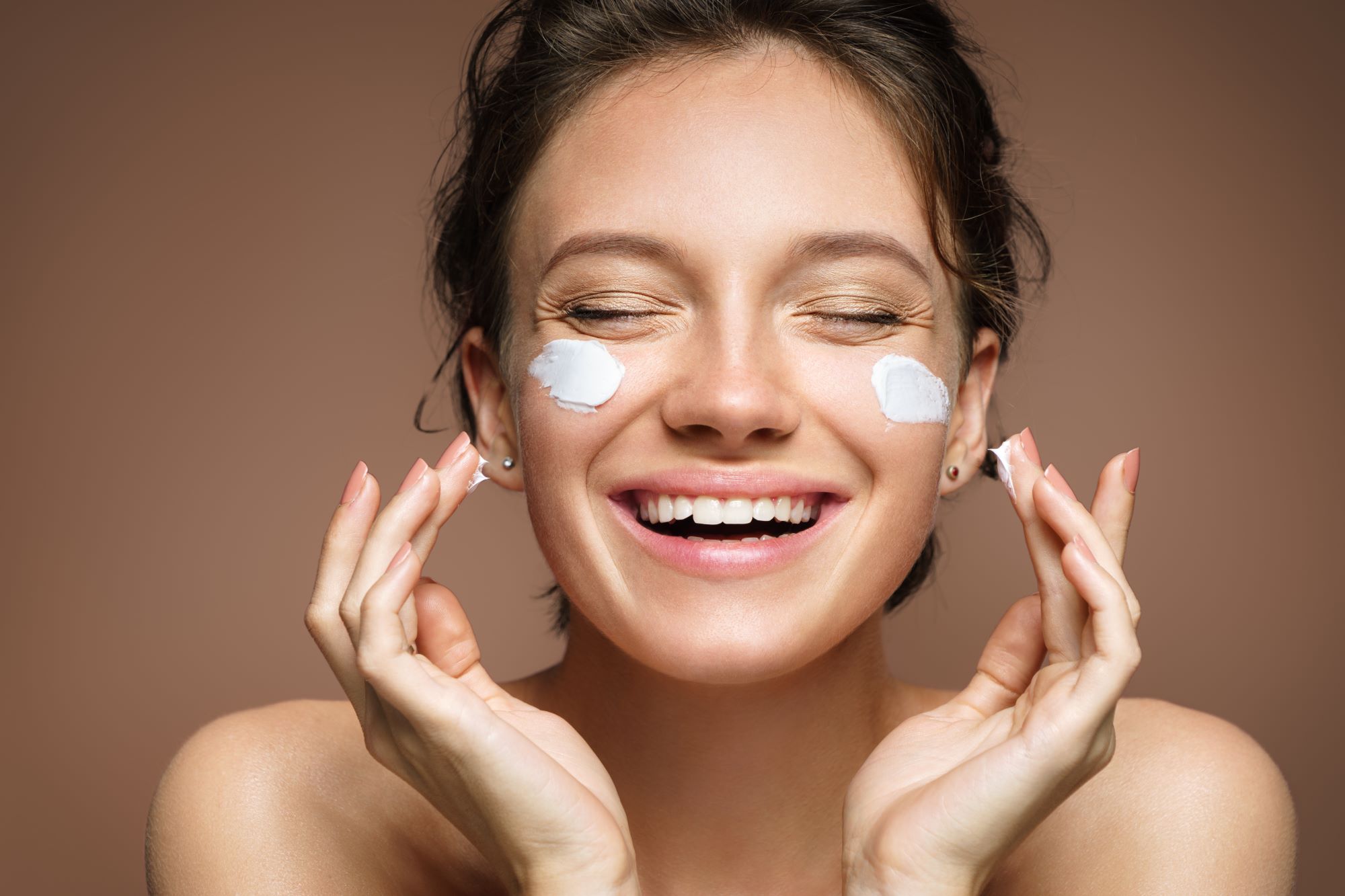
Hydrate and moisturize to maintain a healthy skin barrier7
2
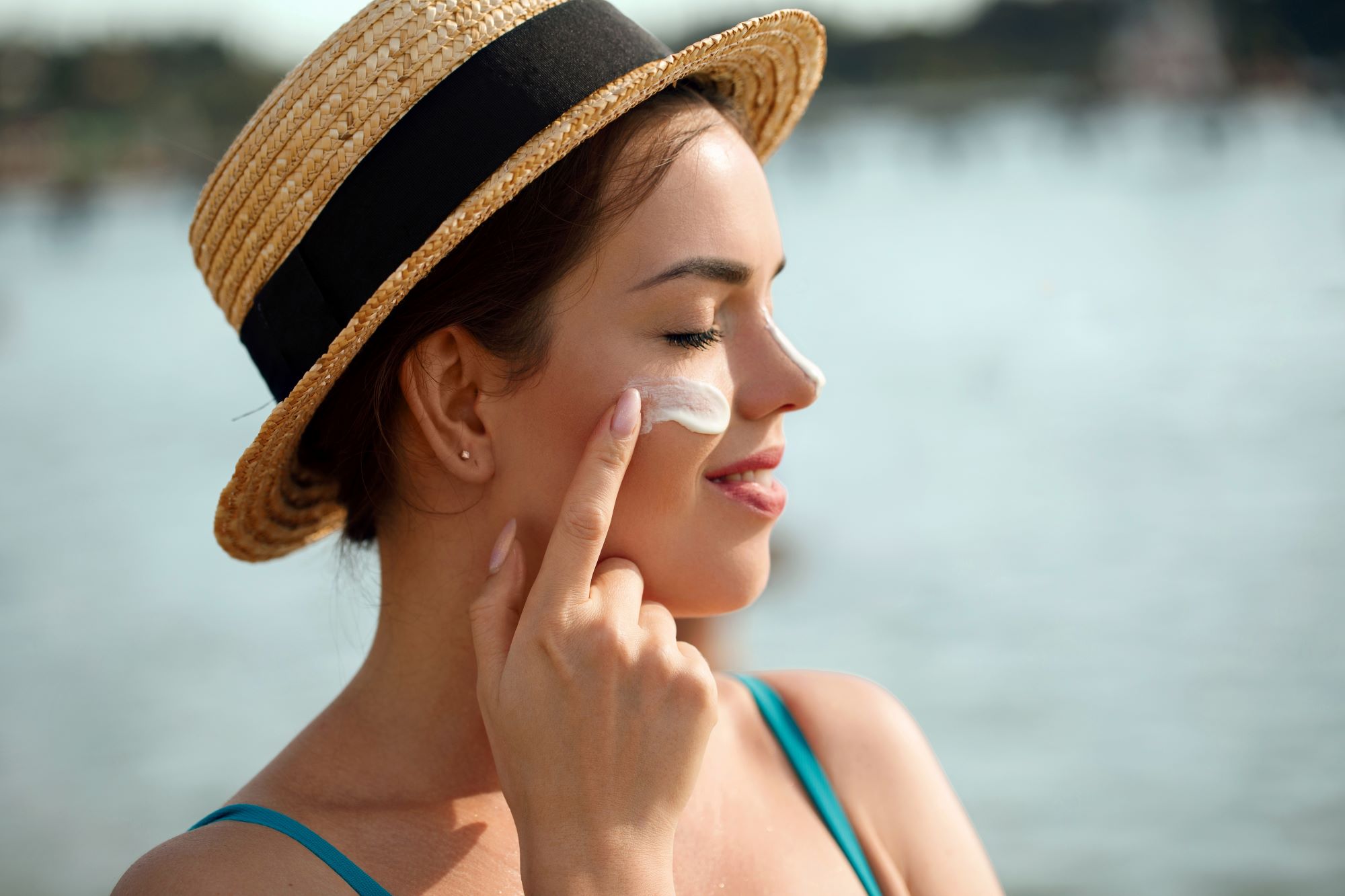
Always use sunscreen1
3
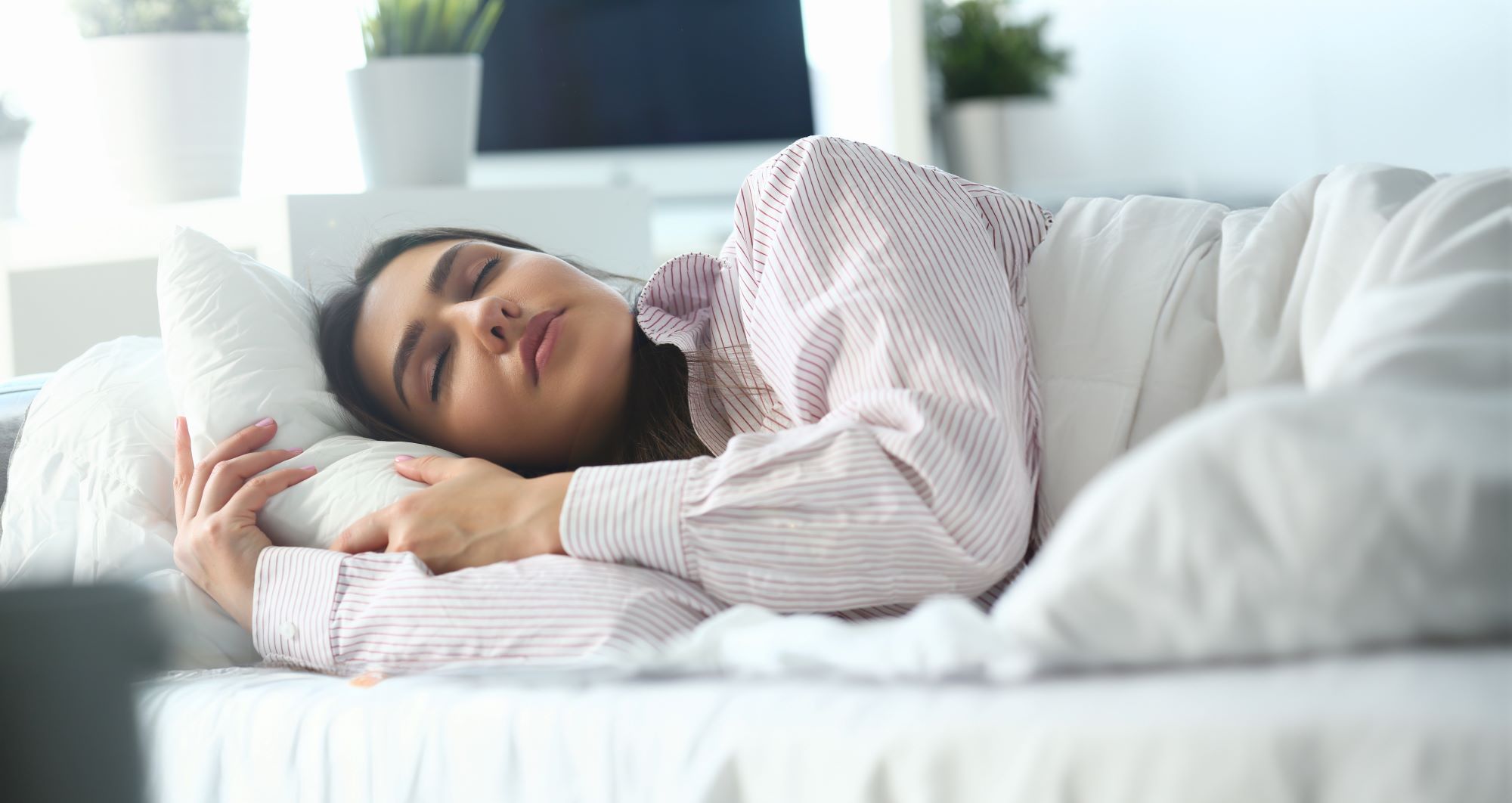
Manage stress and get adequate sleep6
4
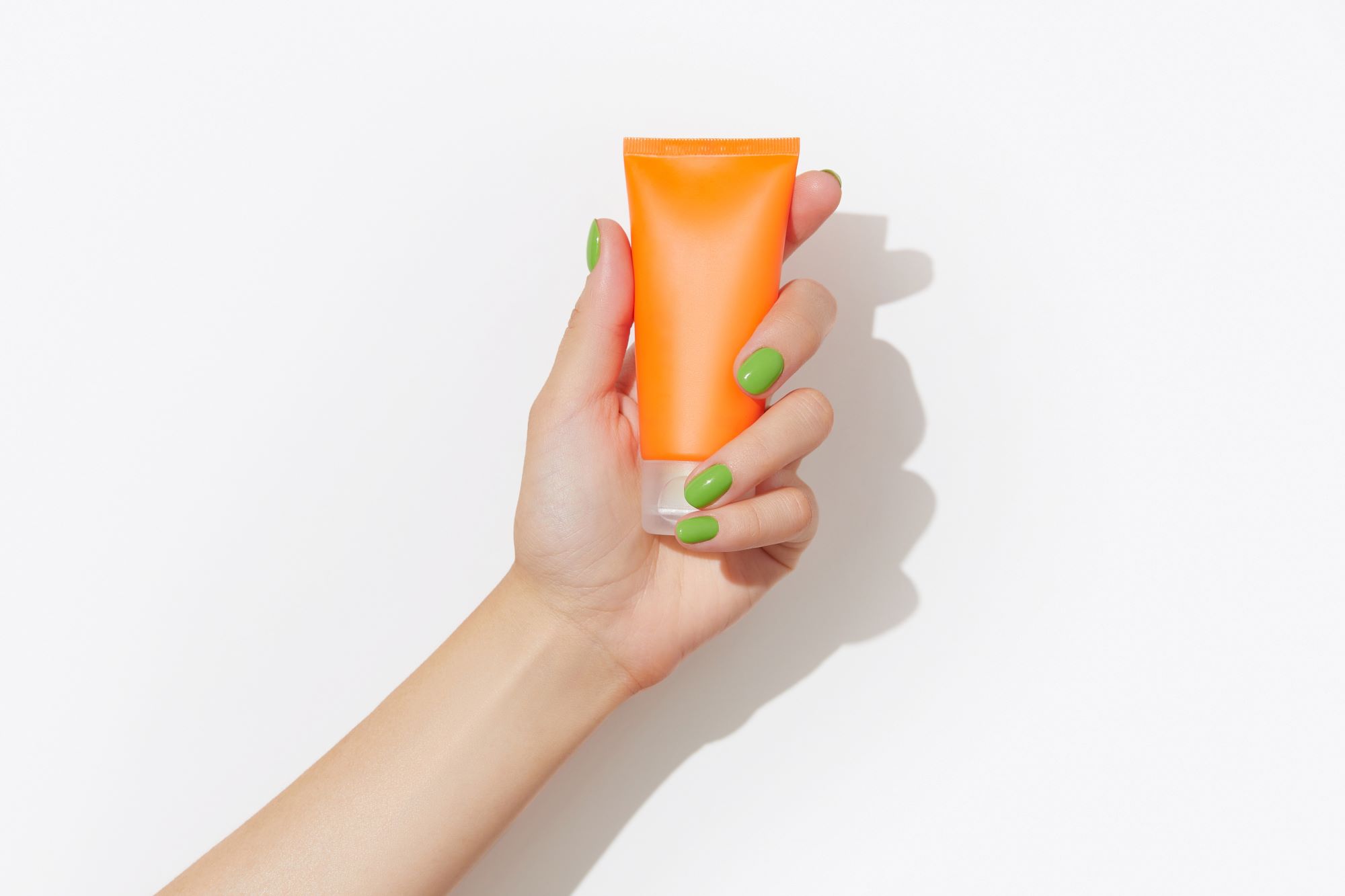
Include topical treatments3,4
5
